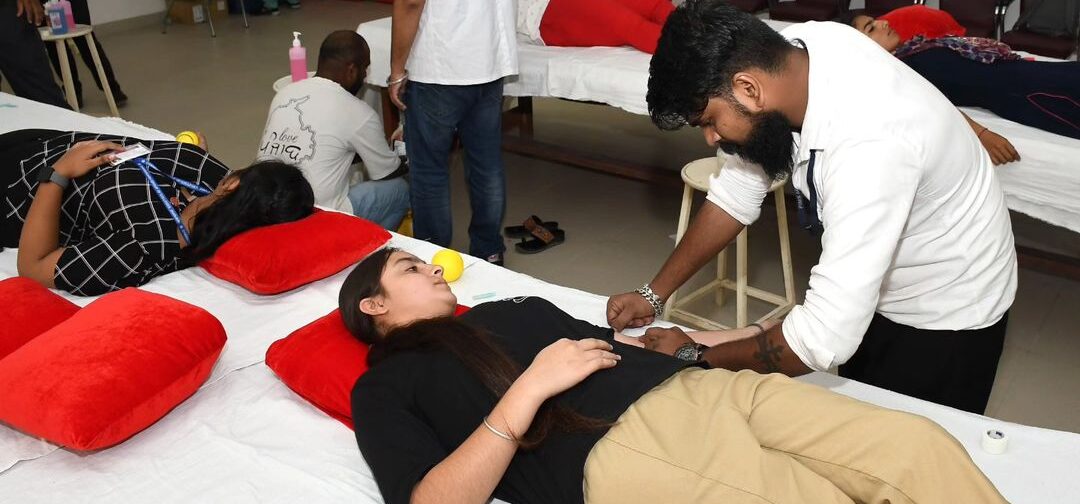- Room No-07, Block-01, CGC Jhanjeri Mohali
- +917087012717

Donating blood is one of the noble deeds one can perform in life, offering life-saving support with minimal inconvenience. With the rise in various diseases, the demand for blood continues to grow daily. As blood cannot be stored for an extended period, it is crucial for healthy individuals to donate blood on a regular basis to prevent shortage. Children with thalassemia, in particular, require frequent blood transfusions. According to the National Health Mission, India has the largest number of children suffering from thalassemia, with 10,000 to 15,000 babies born with this condition each year. An estimated 42 million people carry the beta-thalassemia trait. These particular figures are enough to highlight the critical importance of maintaining well-stocked blood banks. Naya Savera Foundation, an initiative of Chandigarh Group of College, Jhanjeri, always prioritized efforts that can make a real change in someone’s life. To support this noble cause, Naya Savera Foundation joined hands with CGC Jhanjeri’s Department of Medical Laboratory Sciences, and Student Affairs to host a blood donation camp on the premises. Organized on August 13, 2024, over 200 enthusiastic students and faculty members, driven by their desire to contribute to humanity, rolled their sleeves and donated blood. Thanks to the efforts of the foundation and CGC Jhanjeri’s department and student’s body, more than 160 units of blood were collected, potentially saving numerous lives.
According to the World Health Organisation (WHO), a person in the pink of health can donate blood, but there are basic requirements to follow. Generally, individuals between 15 and 65 years old can donate blood, although some countries have specific conditions, including physical and hematological requirements and appropriate consent. A blood donor must weigh at least 50 kg and should not be suffering from any illness such as a cold or cough, that can prevent from donating blood. Individuals suffering from HIV and Hepatitis B or C are strongly discouraged from donating blood as they can infect a healthy person. In 2004, the WHO had recognized June 14 as World Blood Donor Day with an aim of creating awareness about blood donation. June 14 marks the birth anniversary of Dr Karl Landsteiner, who was honored with the Nobel Prize for Medicine in 1930 for his work in classifying blood types. Dr Landsteiner, who was the first to classify blood into A, B, AB, and O groups, helped the planet leading the practice of transfusing blood between people with compatible blood types. In 2024, the theme of World Blood Donor Day is ‘20 years of celebrating giving: Thank you blood donors!’
The Naya Savera Foundation encourages voluntary practice of donating blood as the practice is good for cardiovascular health. When an individual donates, the thickness of blood gets reduced, allowing the easy flow of blood in the body and lowering the risk of blood clots, heart attacks, and strokes. Blood donation also acts as a mini-health screening because doctors first examine the health of the donor. It helps identify high blood pressure or heart arrhythmias. Moreover, it is a deeply-rewarding exercise, which gives personal satisfaction when an individual contributes its part to saving someone’s life. The Naya Savera Foundation will continue to carry out such noble exercises of community service. Moreover, the foundation will also promote such noble causes as every drop counts!